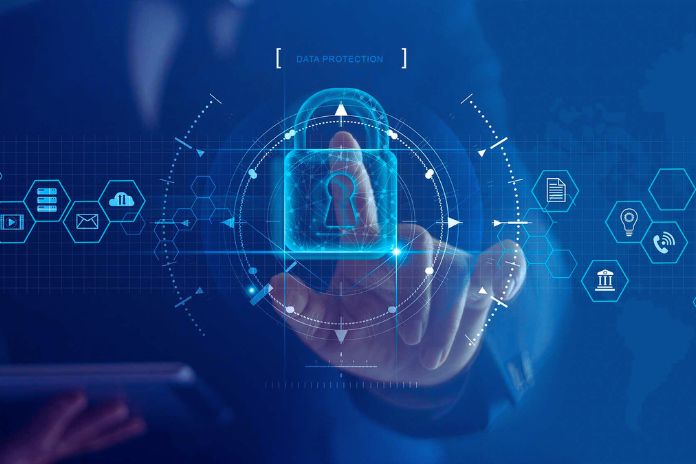Information security is crucial for any company, regardless of size or industry. With the growing threat of cyber-attacks and the proliferation of viruses, companies must always be aware of information security best practices.
This article will cover 5 information security best practices for companies. These practices will help protect your data and systems from external and internal threats.
Identify And Classify Your Organization’s Data
Your organization’s data must be identified and classified to be adequately protected. Data classification will help determine the protection level needed for each data type.
Data can be classified as:
- Public – Data that anyone can access.
- Confidential – Data that is restricted to a limited number of people.
- Internal – Data that is only used by authorized people in the organization
Protect Your Internal And External Networks
Implement security measures to protect the network from outside intrusions. This includes firewalls, intrusion detection and prevention (IDS/IPS), encryption, and other technologies. Ensure that all devices on the network, including computers, laptops, smartphones, and tablets, are always up to date with the latest security patches. Set clear rules for using the network and connected devices, including accessing restricted sites and sharing files. Also, train your employees to be aware of potential threats to information security.
Create regular backups of the data stored on your computers and servers to ensure a copy is available in case of a system failure or network intrusion. Constantly monitor the network for suspicious activity or potential threats to information security.
Create A Business Continuity Plan To Ensure Information Availability In Case Of Disasters
Business continuity is vital for any company. And Information Security is a crucial aspect of guaranteeing the availability of information in case of disasters. Here are five Information Security practices we recommend for companies: #1 Implement regular and tested backups: Backups are indispensable to ensure business continuity in a disaster.
It is important to have regular, tested backups to ensure that information is successfully restored. #2 Use redundant solutions: Redundant solutions, such as multiple servers or cloud storage, can help ensure information is available even during a server failure or network issues.
#3 Ensure secure remote access: Employees often need to access company information outside the office. That’s why it’s important to ensure that remote access is secure.
Ensure VPN connections are encrypted and authenticated, and mobile devices are protected with strong passwords and encryption. #4 Formulate an incident response plan: Incidents can happen even with the best prevention measures. That’s why it’s important to have a plan to deal with them when they occur.
The plan should include procedures for identifying, investigating, and responding to incidents and measures to minimize the impact on the business. #5 Train your employees: Employees are one of the main lines of defense against information security threats, so it’s important to train them on good information security practices, such as using strong passwords and browsing the web carefully.
Ensure Secure Deletion Of Unnecessary Or Obsolete Data
Information security is essential for any company that deals with confidential data. One of the best ways to ensure data security is to dispose of it securely when it is no longer needed.
This will prevent this data from falling into the wrong hands and being used against the company or its customers. There are several ways to delete data securely. The first is to use hard disk wiping software, which overwrites data with zeros before erasing it. This makes it virtually impossible to recover deleted data.
Another option is to back up the data to an external drive and then format the internal hard drive. This technique also prevents data recovery but requires more time and effort. Whichever method you choose to dispose of data, it is important to check the hard drive before returning it to the original owner or final recipient. This will ensure that no data remains on the hard drive and can be retrieved later.
Information Security Policies To Prevent Leakage Of Confidential Data
One of the most effective ways to protect your company’s confidential information is to train and educate your employees about the risks of information leakage.
Malicious employees can be responsible for leaking confidential information through emails, instant messages, or even personal conversations.
In addition, careless employees can also be responsible for leaving documents or equipment with confidential information exposed. Training and making your employees aware of how to protect your company’s confidential information can help significantly reduce the risk of this data being leaked.
Some tips that can help with this training include:
- Teach your employees how to identify the types of confidential information in your company;
- Explain what are the consequences of leaking this information;
- Teach your employees how to protect this information using encryption tools and other security measures;
- Guide your employees on which channels to use to report suspected cases of information leakage.
Implement Measures To Detect And Respond
Implement a threat detection and response plan for your organization’s information security . This plan should include identifying the main sources of threats and defining measures to minimize the risk of successful attacks . Create an effective detection system to monitor network traffic and identify suspicious activity.
The system must generate real-time alerts so that the necessary measures can be taken to neutralize any identified threat. Implement measures to protect your organization’s critical data, including encrypting sensitive data and implementing strict access controls.
Also, ensure that your backups are protected from unauthorized access and that your systems can be quickly recovered in the event of an incident. Train your employees on information security best practices, including identifying suspicious activity and responding to security incidents.
Ensure that all employees know your organization’s information security risks and their role in preventing them. Stay up-to-date on the latest information security threats and best practices for mitigating them. Technology is constantly evolving, and new threats emerge daily, so it’s crucial to stay up-to-date on the latest trends in Information Security.












